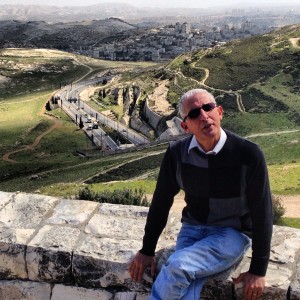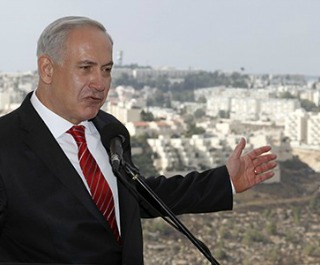
Jerusalem and the Two-State Solution: Breakdown or Breakthrough
Premier Jerusalem expert Danny Seidemann will discuss current developments in and around Jerusalem, and how they
impact the viability of both Secretary Kerry’s ongoing peace efforts, and of the two-state solution itself.
No RSVP necessary
Sunday, February 9th
10:15-11:30 am
Temple Micah,
2829 Wisconsin Avenue NW (corner of Garfield)
in the Sanctuary
Daniel “Danny” Seidemann is the founder and director of Terrestrial Jerusalem (TJ), an Israeli non‐governmental organization that promotes an Israeli‐Palestinian permanent status peace agreement by working to ensure that an agreement is possible on the issue of Jerusalem. By providing decision‐makers and opinion‐shapers with relevant data, analyses and maps, TJ strives to engage them in preventing developments that are detrimental to (a) the two‐state solution, (b) the stability of Jerusalem, and (c) the humanitarian situation.
In addition, you can read his most recent article on Jerusalem here.

 his week, Alpher discusses Netanyahu's comment at Davos last week that he "doesn't intend to
remove a single settler" and the reactions it provoked; whether Livni has joined the chorus of Israelis
despairing of this peace process, and if so, why doesn't she resign; why is the Israeli security establishment
returning to the tactic of targeted killings of Gazan extremist now, after a two-year lull, and a few last words
in memory of Shulamit Aloni.
his week, Alpher discusses Netanyahu's comment at Davos last week that he "doesn't intend to
remove a single settler" and the reactions it provoked; whether Livni has joined the chorus of Israelis
despairing of this peace process, and if so, why doesn't she resign; why is the Israeli security establishment
returning to the tactic of targeted killings of Gazan extremist now, after a two-year lull, and a few last words
in memory of Shulamit Aloni.
 We know that pro-Israel does not mean blindly supporting policies
that are irrational, reckless, and counter-productive. Pro-Israel means supporting policies that are consistent
with Israel's interests and promote its survival as a Jewish, democratic state.
We know that pro-Israel does not mean blindly supporting policies
that are irrational, reckless, and counter-productive. Pro-Israel means supporting policies that are consistent
with Israel's interests and promote its survival as a Jewish, democratic state.

